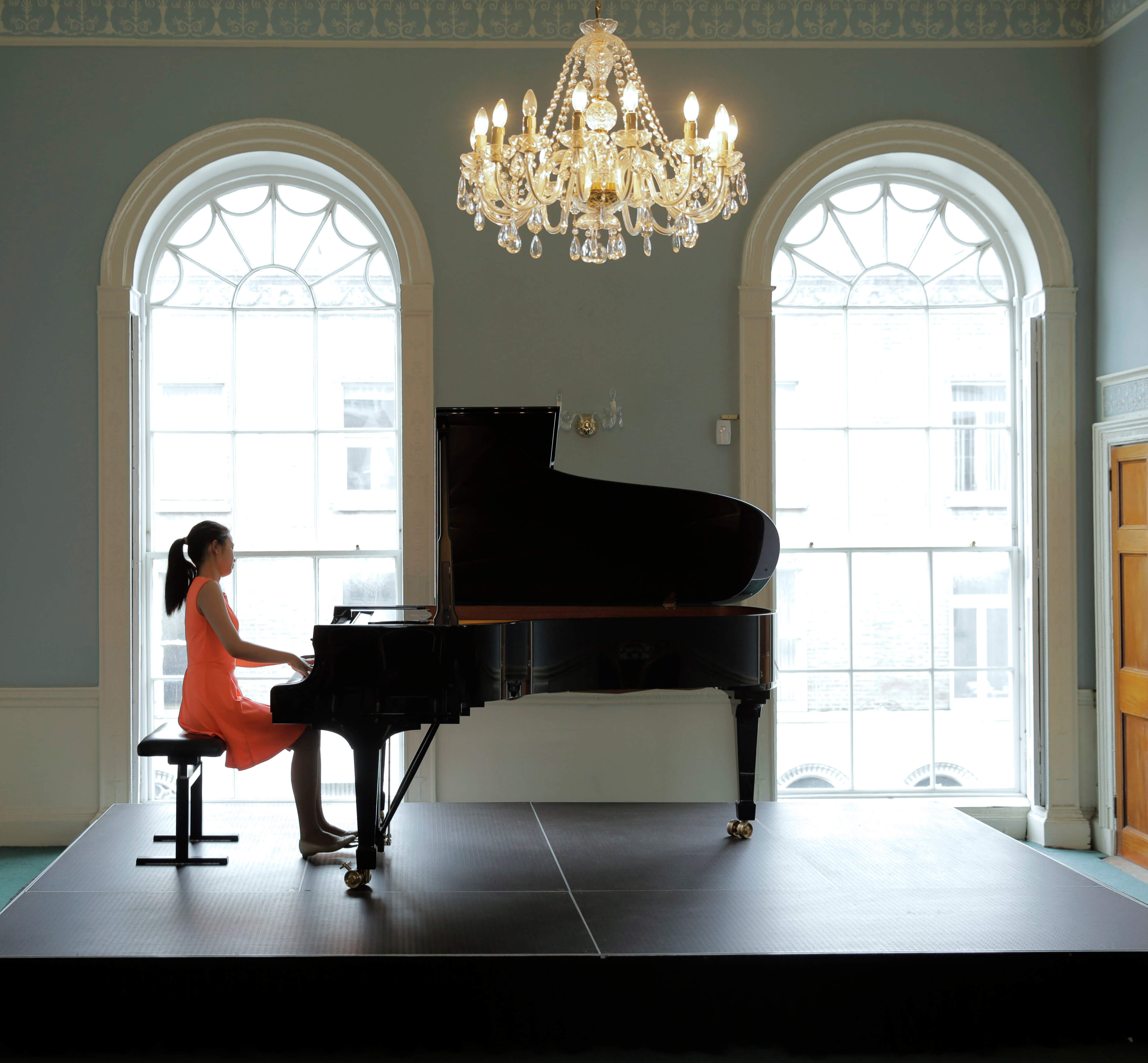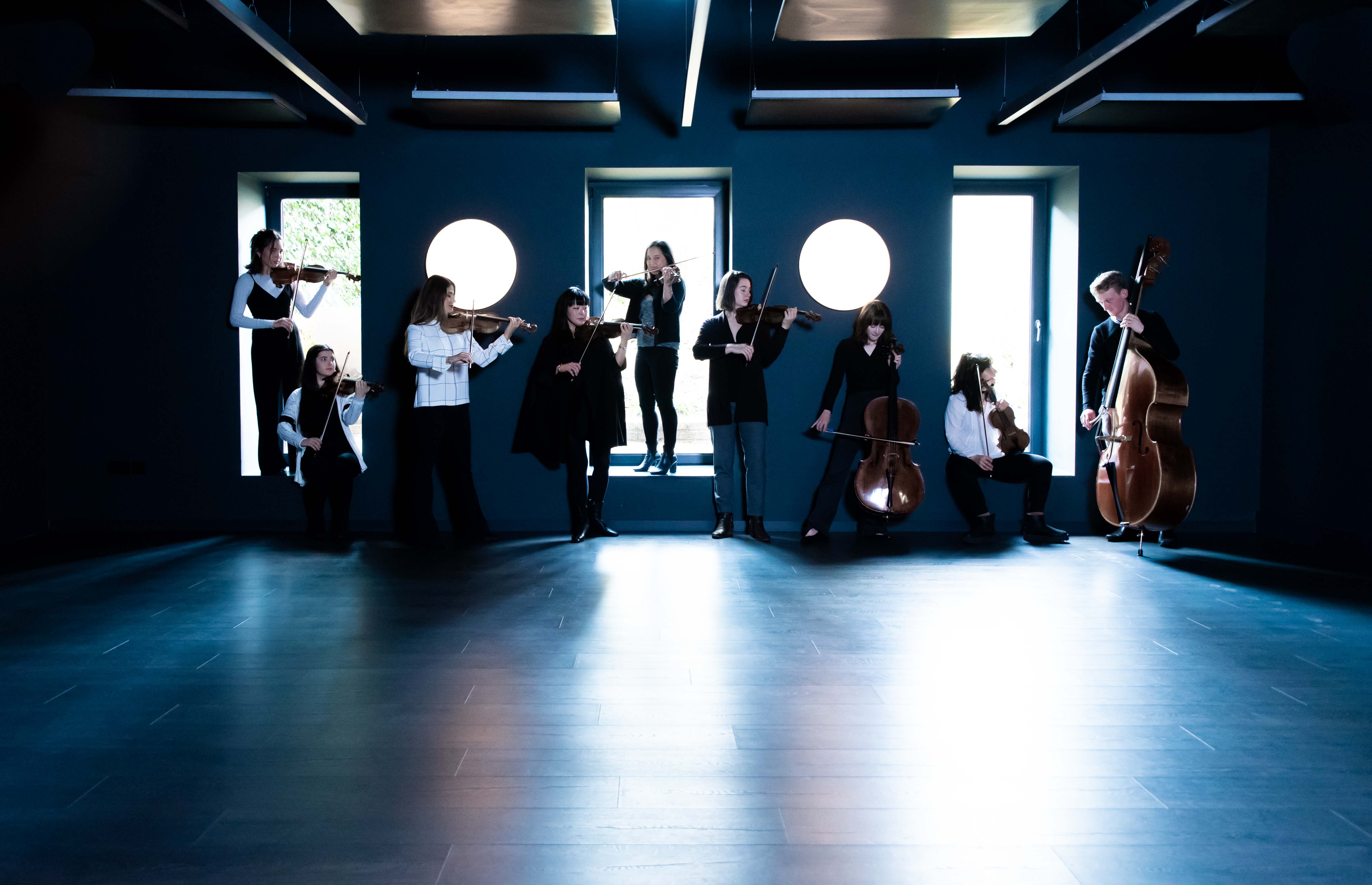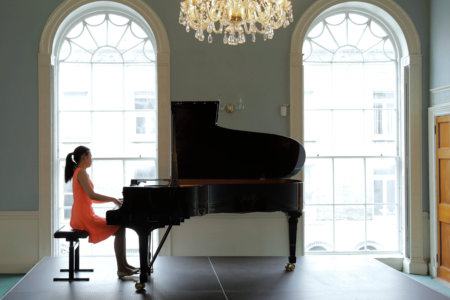Imagine playing with some of the best orchestras the music world has to offer. Performing at the most distinguished opera houses that have produced many leading names in music. Learning from respected and accomplished musicians. Participating in some of the most prestigious international music competitions — and winning.
These are some of the achievements by students and graduates of the Royal Irish Academy of Music.
An associate college of Trinity College, the University of Dublin, which is Ireland’s highest-ranking university, the RIAM delivers individually-tailored and industry-focused music education with unparalleled performance opportunities. It’s situated in the heart of Dublin, which means students are exposed to Ireland’s rich culture and heritage all whilst having easy access to the UK and mainland Europe. Ireland is also the only English-speaking country in the Eurozone.
RIAM students and graduates have been finalists and winners of the Clara Haskil International Piano Competition, the Cardiff Singer of the World Competition, and the Kohn Foundation Wigmore Hall Song Prize, among others. Former students are currently members of leading orchestras, including the London Symphony Orchestra and the Philharmonia Orchestra, as well as opera houses such as the Royal Opera House, London, and La Scala, Milan.

Royal Irish Academy of Music offers the most one-to-one tutor hours of any music conservatory in Europe. Source: Royal Irish Academy of Music
One of the secrets behind their success? Attending an academy with the most one-to-one tutor hours of any music conservatory in Europe.
“The class sizes in the RIAM are generally smaller, averaging around six to nine people, and approach learning with a more student-focused attitude,” shares Bachelor in Music student David Kennedy. “Students get two hours of lessons a week with their principal study teacher as well as several hours a year with one of their amazing répétiteurs. This is great as I’ve found there’s a lot more one-on-one interaction with singing teachers and lecturers.”
Kennedy has tailored his programme to focus on Vocal Performance. Students can also choose to tailor their degree around specialising in the keyboard, strings, wind, brass and percussion instruments, composition — or a combination of any two.
“The academy also provides a wide range of modules that are vital in the life of a performer,” Kennedy adds. “The new holistic modules that have been introduced this year help prepare students for the professional working world with new modules in career strategy, vocal health, personal development, performance psychology, and more. A fully-staged opera is also put on each year as part of the vocal programme.”
Students are given the opportunity to participate in fully-staged productions in the academy’s world-class performance spaces. Source: Royal Irish Academy of Music
Students are drawn to RIAM for its network of accomplished teachers, most of whom are active professional musicians. Maria Rojas, an MMusPerf Masters Programme student who specialises in the oboe, applied for the opportunity to learn under RTÉ National Symphony Orchestra Principal Oboe Matthew Manning. “I remember finding a short video of Matthew playing in the National Concert Hall, and I immediately knew I wanted to study with him,” the Mexican student says. “His sound was like nothing I had ever heard before, so unique and beautiful … I arranged a lesson and we agreed I would study with him!”
Incoming students will be treated to a brand new 23 million euro world-class campus, which will open in September 2022. It features a 300-seat Recital Hall, Library & Research Hub, Opera Studio, Music Discovery & Therapy Facilities, and a Sonic Arts Hub. Off-campus, students also have plenty of opportunities to work with some of the leading ensembles and orchestras in Ireland, such as the Irish Chamber Orchestra, Irish Baroque Orchestra, and RTÉ National Symphony Orchestra.
The academy welcomes a host of postgraduate students who wish to further hone their musical skills, as well. “After I finished my master’s degree, I wanted to do something for myself and only for myself,” says Kalle Peura from Finland. He decided on the Recital Artist Diploma. Suited for postgraduates, the non-academic programme solely focuses on preparing students for professional performances and international competitions. “Very few music universities offer such a unique, flexible curriculum,” he adds.

The Royal Irish Academy of Music delivers individually-tailored and industry-focused music education with unparalleled performance opportunities. Source: Royal Irish Academy of Music
The close-knit community at RIAM ensures that students achieve personal and professional growth. “Master’s students do not have many academic classes at RIAM, but I found our string performance classes enormously helpful in fostering a supportive community among the string students,” adds American MMus graduate Erin Hennessey. She’s currently under the Professional Mentorship programme, which is specifically tailored to guide students on navigating the professional world of music. “We were all there to listen and provide feedback for each other, which improved our playing and our friendships.”
Outside of academia, students receive deep support in personal matters, too. The staff at the RIAM includes two student counsellors, and a team of Student Support Leaders (both staff and students) who are happy to meet and answer questions for new students. There is also access to free and confidential mentoring and counselling with in-house supports with a health and wellbeing partner.
There is no doubt that students at RIAM are given the best possible tools to succeed in their chosen musical professions. The one characteristic that sets them apart, however? The academy’s emphasis on cultivating dedication, respect and collaboration. “Dedication is emphasised, modelled, and expected by my private teacher, and I’ve learned just how much it pays off,” Hennessey says. As does an RIAM education.
Apply for a spot at the Royal Irish Academy of Music or look here to find out more about their list of undergraduate and postgraduate programmes. Applications for their September 2022 intake closes on Tuesday 4 January 2022.
Follow the Royal Irish Academy of Music on Facebook, Twitter, Instagram and YouTube.











